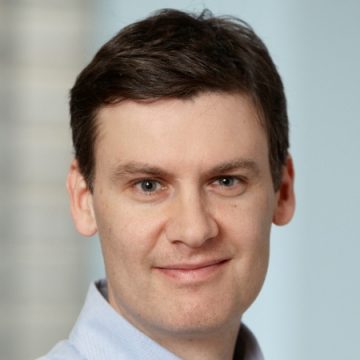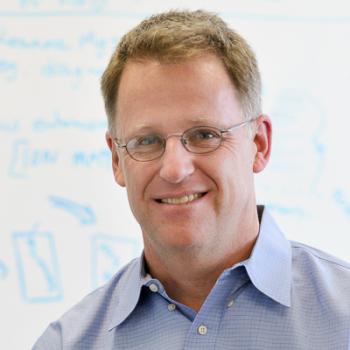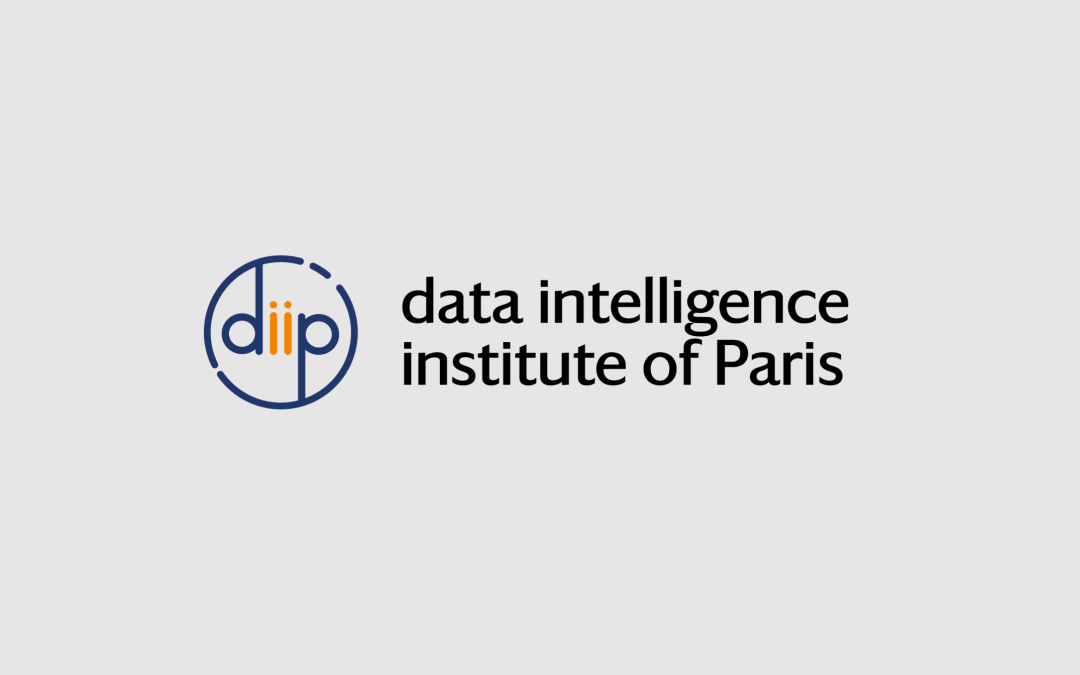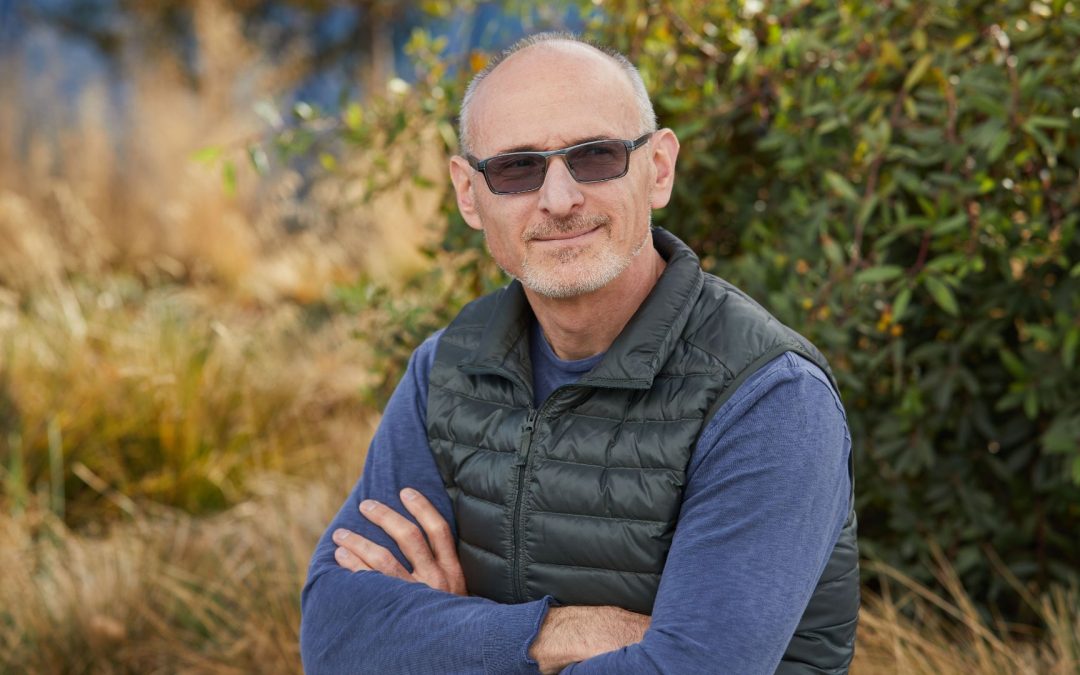In September 2020 the Data Intelligence Institute of Paris (diiP) started operations. Following its first call for proposals, 13 Masters Projects and 3 Strategic Projects were selected for 2021. In order to present these projects, and celebrate its birth, diiP organizes its official kick-off event on February 15, 2021.

diiP Kick-off Event
The Data Intelligence Institute of Paris is glad to invite you to its official kick-off event on the February 15, 2021, 3:15-6:45 PM.
The President of Université Paris Cité, Christine Clerici, and Vice-President for Research, Edouard Kaminski, will open the event with welcome messages and an introduction to the IdEx Interdisciplinary Institutes initiative of the university. We will then have short presentations of the interdisciplinary projects that diiP supports in 2021, and offer opportunities for networking. Last but not least, we will have two distinguished invited speakers:
- Donald Kossmann, Director of Microsoft Research (USA);
- Ian Foster, Director of Data Science and Learning, Argonne National Laboratory (USA).
Agenda
- 3:15 Connection to audio
- 3:30-3:45 Introduction by Christine Clerici, President of Université Paris Cité & Edouard Kaminski, Vice-President for Research
- 3:45-4:00 Presentation of the Data Intelligence Institute of Paris by Themis Palpanas, Director of diiP
- 4:00-4:30 Masters Projects presentation
- 4:30-5:00 Keynote “Democratizing AI: For Everybody and Everything” by Donald Kossmann, Director of Microsoft Research (USA)
- 5:00-5:15 Break
- 5:15-6:00 Strategic Projects presentations
- 6:00-6:30 Keynote “Transnational Research in Data-Driven Discovery” by Ian Foster, Director of Data Science and Learning, Argonne National Laboratory (USA)
- 6:30-6:45 Concluding remarks and outlook
Welcome Messages
Christine Clerici, President of Université Paris Cité, and Edouard Kaminski, Vice-President for Research, will open the event, followed by Themis Palpanas, Director of diiP, who will introduce the institute and its goals.
Christine Clerici is the first newly elected President of the Université Paris Cité. She was President of Paris Diderot University from May 2014 to 2019. She is also, since 2019, the President of UDICE, a coordination of 10 French Research-Intensive Universities. She was appointed a member of the College of Ethics of the Ministry of Higher Education, Research and Innovation in May 2018. She holds a doctorate in Science from Paris 12 University. She was appointed Professor of Physiology in 1995 and joined the Faculty of Medicine of Paris Diderot University in 2002. Since 2005, Christine Clerici headed the Department of physiology-functional explorations for adults and children at Bichat and Louis-Mourier Hospitals. Her research activities focus on the mechanisms involved in the reduction of pulmonary edema lesions, including in vitro and in vivo models of acute respiratory distress syndrome.
Edouard Kaminski is Professor of geophysics at the Institut de physique du globe de Paris, Université Paris Cité, specialized in geological fluid dynamics. His work spans from the physics of volcanic eruptions to the dynamics of planetary interiors. He is currently Vice-President for Research at Université Paris Cité.
Themis Palpanas is Senior Member of the French University Institute (IUF), and professor of computer science at the Université Paris Cité, where he is director of the Data Intelligence Institute of Paris (diiP). He received his PhD from the University of Toronto, Canada. He has previously held positions at the University of California at Riverside, IBM T.J. Watson Research Center and University of Trento, and visited Microsoft Research, and the IBM Almaden Research Center. His interests include problems related to data science, big data
analytics and machine learning applications. He is the author of 9 US and 2 French patents. He is the recipient of 3 Best Paper awards, and the IBM Shared University Research (SUR) Award. He is currently serving on the Very Large Data Bases Endowment Board of Trustees, and as an Editor in Chief for the Big Data Research Journal.
Invited Seminars
1. “Democratizing AI: For Everybody and Everything” by Donald Kossmann, Director of Microsoft Research (USA)
Abstract: Machine Learning and AI have been mostly used to “program the impossible.” That is, these technologies are most successful to address computational problems such as Computer Vision or Natural Language Processing for which traditional programming techniques are not appropriate. This talk argues that AI technologies can also be attractive for more traditional software engineering tasks. There are several recent systems, hardware, and security trends that support this prediction.
Donald Kossmann is the director of the Microsoft Research Lab in Redmond. He joined Microsoft in 2014. Before that, he was a professor in the Systems Group of the Department of Computer Science at ETH Zurich (Switzerland). He is an ACM Fellow and has been Chair of ACM SIGMOD. He is a co-founder of four start-ups in the areas of Web data management and cloud computing.

2. “Transnational Research in Data-Driven Discovery” by Ian Foster, Director of Data Science and Learning, Argonne National Laboratory (USA)
Abstract: I discuss experiences over two decades developing and applying data-driven methods for discovery in the sciences, starting with work in high energy physics and more recently encompassing climate and materials science. A common theme is the value of a transnational approach, in which the deliberate movement of research results into large-scale practice becomes a central research focus rather than an afterthought.
Dr. Ian Foster is the Director of Argonne’s Data Science and Learning Division, Argonne Senior Scientist and Distinguished Fellow and the Arthur Holly Compton Distinguished Service Professor of Computer Science at the University of Chicago. Foster’s research contributions span high-performance computing, distributed systems, and data-driven discovery. He has published hundreds of scientific papers and eight books on these and other topics. Methods and software developed under his leadership underpin many large national and international cyber infrastructures. Foster received a BSc (Hons I) degree from the University of Canterbury, New Zealand, and a PhD from Imperial College, United Kingdom, both in computer science. His awards include the Global Information Infrastructure (GII) Next Generation award, the British Computer Society’s Lovelace Medal, R&D Magazin’s Innovator of the Year, the IEEE Tsutomu Kanai award, and honorary doctorates from the University of Canterbury, New Zealand and CINVESTAV, Mexico. He is an elected Fellow of the American Association for the Advancement of Science, the Association for Computing Machinery, and British Computer Society.

À lire aussi

Nikos Paragios – Seeing the Invisible – Doing the Impossible: Reinventing Healthcare with Generative AI-powered diagnosis, treatment and beyond
Nikos ParagiosDecember 04, 2024Vulpian Amphitheater, 12 rue de l’École de Médecine (75006 Paris) Nikos Paragios (52) is distinguished professor of Mathematics (on partial leave) at Ecole CentraleSupelec, the school of engineering ofthe University of Paris-Saclay and...

Deeply Learning from Neutrino Interactions with the KM3NeT neutrino telescope
2022 PhD/ DIAI Projects @AstronomyParticle physics and graph neural networks Santiago PENA MARTINEZ Project Summary A new generation of neutrino experiments is in the horizon looking to explore many of the open questions on neutrino properties and searching for...

Alon Halevy – Well-being, AI, and You: Developing AI-based Technology for Well-being
Alon HalevyDecember 04, 2024Vulpian Amphitheater, 12 rue de l’École de Médecine (75006 Paris) Alon Halevy is a Distinguished Engineer in Google Cloud. From 2019 until November 2023, he was a director at Meta’s Reality Labs Research, where he worked on Personal Digital...

Shen Liang – Knowledge-guided Data Science
Shen LiangMay 18, 4 PM online (zoom) linkedinAbstract This tutorial presents an overview of knowledge-guided data science, a rising methodology in machine learning which fuses data with domain knowledge. We will present numerous case studies on this methodology...
